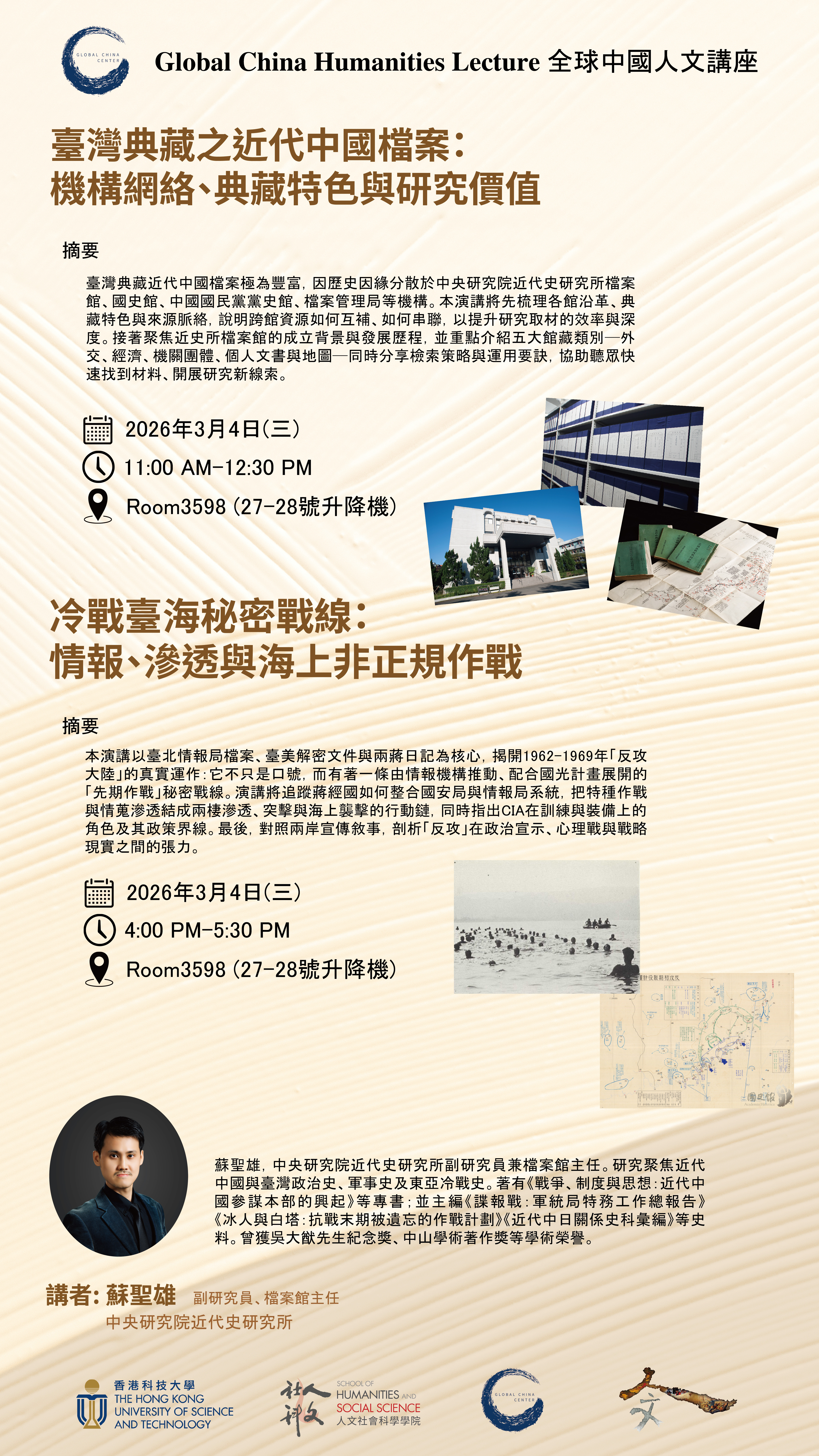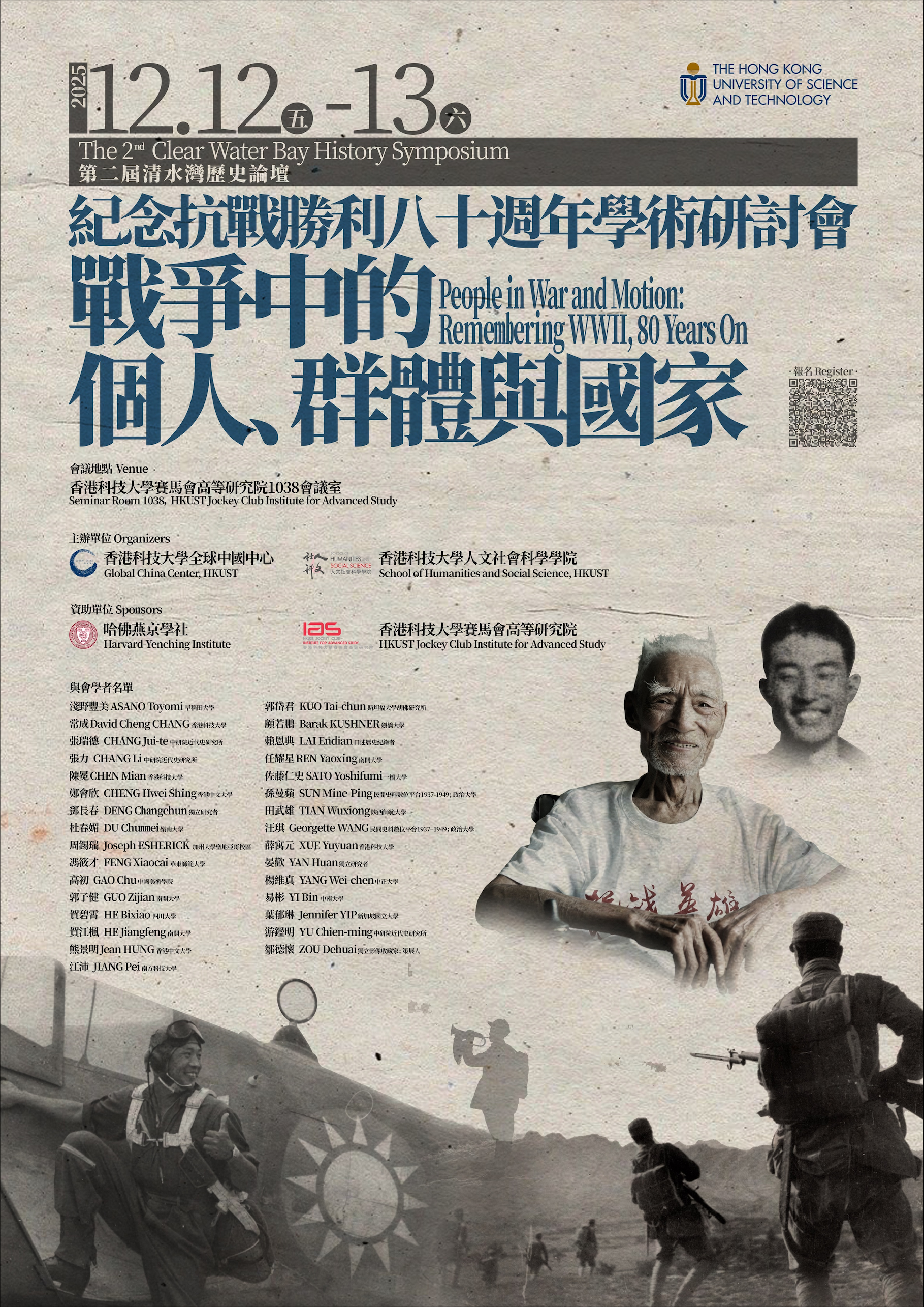Upcoming Events
臺灣典藏之近代中國檔案:機構網絡、典藏特色與研究價值 (第一場) 冷戰臺海祕密戰線:情報、滲透與海上非正規作戰 (第二場)
學術大樓3598室(27-28號升降機)
摘要
第一場
臺灣典藏之近代中國檔案:機構網絡、典藏特色與研究價值
臺灣典藏近代中國檔案極為豐富,因歷史因緣分散於中央研究院近代史研究所檔案館、國史館、中國國民黨黨史館、檔案管理局等機構。本演講將先梳理各館沿革、典藏特色與來源脈絡,說明跨館資源如何互補、如何串聯,以提升研究取材的效率與深度。接著聚焦近史所檔案館的成立背景與發展歷程,並重點介紹五大館藏類別——外交、經濟、機關團體、個人文書與地圖——同時分享檢索策略與運用要訣,協助聽眾快速找到材料、開展研究新線索。
第二場
冷戰臺海祕密戰線:情報、滲透與海上非正規作戰
Past Events
The 2nd Clear Water Bay History Symposium 第二屆清水灣歷史論壇 紀念抗戰勝利八十週年學術研討會
to
IAS 1038, Lo Ka Chung Building, Lee Shau Kee Campus, HKUST
戰爭中的個人、群體與國家 People in War and Motion: Remembering WWII, 80 Years On READ MORE...
From Monkey King: Hero’s Return to Ne Zha 2: What Makes a Good China Story?
Room 3401 (Lift 2 / Lift 17-18), HKUST
Ne Zha 2 (Yu Yang, 2025), a Chinese animation based on a Chinese legend broke global box-office records for animated films. Patriotic Chinese netizens cheered for its success, though the film gained little traction beyond the Chinese market. Numerous reports and commentaries published by the state run media in China nonetheless highlighted the film’s success in “telling the good China story.”A decade ago, another Chinese animation, Monkey King: Hero’s Return (Tian Xiaopeng, 2015) made a splashy critical and commercial debut, though its total box-office of US$153 million pales in comparison to Ne Zha 2’s US$2.2 billion. Yet Monkey King too was made into a national hero for transforming Chinese animation film. From Monkey King to Ne Zha 2, the nationalist fervour to propagate Chinese culture abroad only grew stronger, endowing Chinese animation with the mission of carrying the China torch. The effort begs the question of the criteria upon which “a good China story” can be measured and the efficacy of image building by mining Chinese mythology and Legends. My talk examines the gap between the film’s runaway domestic success and its lukewarm international reception to discuss the basics of quality audiovisual storytelling and the weight, if not burden, of storytelling as singing the Gospel of Chinese culture. READ MORE...


